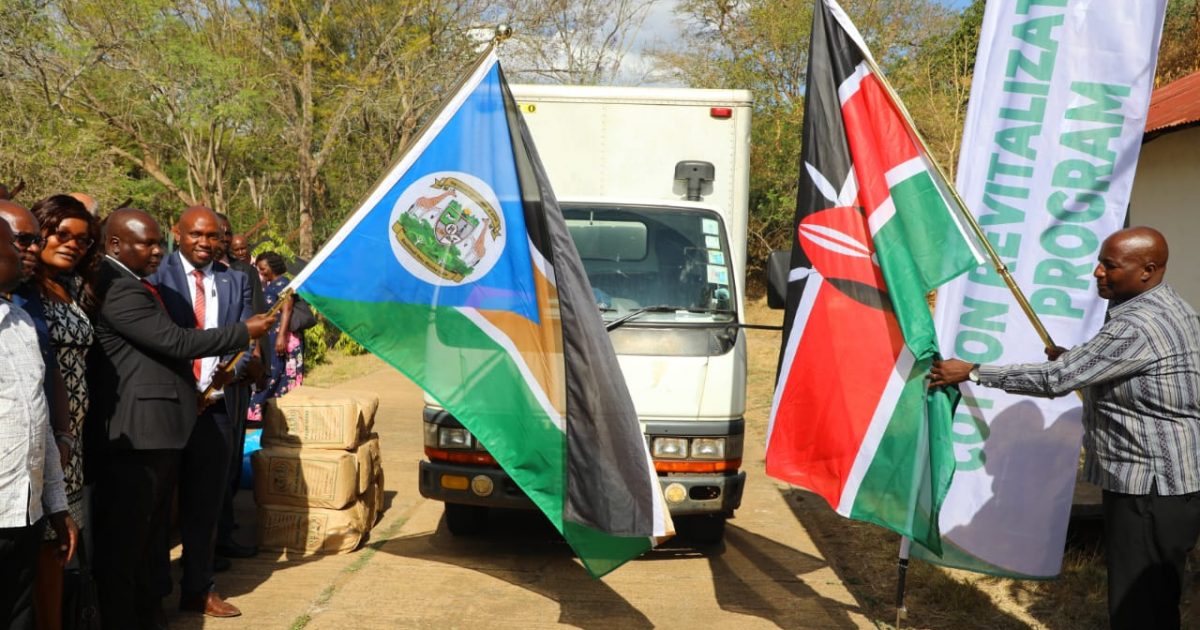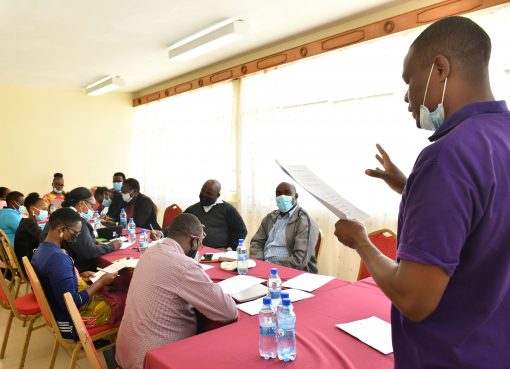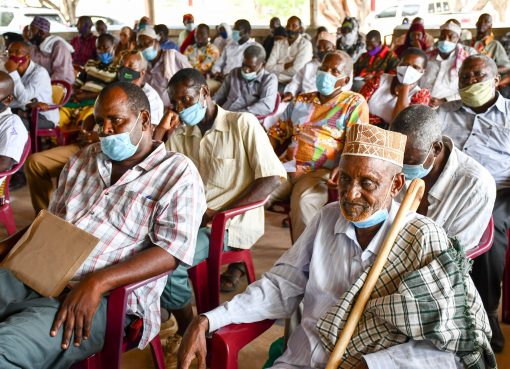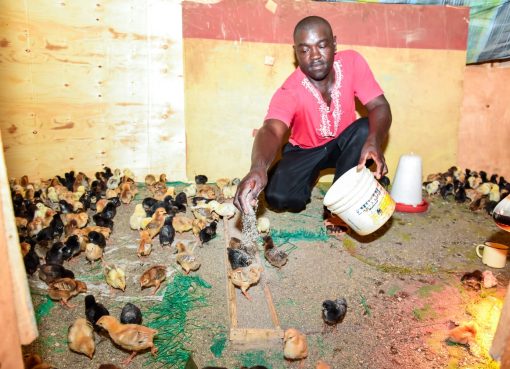The national government in partnership with Kitui County government has embarked on distribution of cotton seeds to farmers in Kitui County in efforts to revive cotton farming in the county.
Principal Secretary of the State Department of Industry, Dr Juma Mukhwana, and Kitui County Deputy Governor, Augustine Kanani on Friday launched the distribution of cotton seeds to farmers across the expansive Kitui County.
The partnership that has attracted other organizations from the region, aims to distribute 27 metric tons of Hart 89M cotton seeds variety and two metric tons of BT cotton seeds variety to farmers across the county.
The principal secretary while speaking during the launching of the cotton seeds disturbing ceremony held at Kenya Forest Research Institute (KEFRI) in Kitui town, noted that the distribution of cotton seeds initiative marks a significant step toward revitalizing the cotton sector and improving the lives of cotton farmers in Kitui County.
“The core objective of this collective effort is to harness the potential of the cotton industry and significantly fast truck cotton production in the country. This surge in production is crucial to ensure a steady and ample supply of raw materials to both the public and private sectors’ cotton industries, which have undergone substantial rejuvenation in recent times,” he said.
“These initiatives aim to stimulate economic growth, create employment opportunities, and ultimately strengthen the overall cotton value chain,” Mukhwana added.
Deputy Governor Augustine Kanani, while delivering the governor’s speech, emphasized the administration’s support for extending services to boost the cotton sector.
He said that Kitui County is in the fifth position in the 2022 national cotton production rankings.
He retaliated that Governor Malombe places agriculture as a top priority in Kitui, and the revival of the sector, which played a historic role in the 1990s, is particularly timely as the world faces a severe cotton shortage.
He said that globally, the cotton trade for 2022/23 was 48.7 million bales, with expectations of it rising to 53 million bales in the next decade.
Kanani also highlighted the Kitui County Integrated Plan (CIDP) 2023-2027, which prioritizes cotton production as a viable value chain in the county.
“The County government plans to enhance production and productivity by offering support to cotton farmers, including extension services, farm inputs, subsidized tractor plowing prices, market linkages, and value addition” Kanani added.
He further said the distribution of seeds is part of the county government’s efforts to diversify agricultural activities and provide farmers with alternative sources of income.
“Cotton farming has the potential to transform the livelihoods of farmers in Kitui County. The distribution of seeds at KEFRI is a significant step towards achieving this goal,” he said.
The PS observed that by providing farmers with access to high-quality cotton seeds, the county government is encouraging them to venture into cotton farming and tap into the growing demand for cotton products.
“This initiative not only creates employment opportunities but also reduces the county’s dependence on traditional crops like maize. It is indeed a commendable effort by Kitui County to promote agriculture and improve the economic well-being of its residents,” said the PS.
The deputy governor said Kitui County has witnessed a remarkable event that promises to rejuvenate the region’s cotton industry. The launch of the Cotton Seeds distribution program at the KEFRI grounds in Kitui Town was a significant step towards the revitalization of the cotton value chain in the area.
He said that the cotton seeds distribution demonstrates the government’s commitment to breathing new life into the cotton sector, offering the local community a promising path to economic prosperity.
The Cotton Value Chain Revitalization initiative is a strategic move, aiming to deliver tangible benefits to the people of Kitui. Cotton, once a flourishing industry in the region, has faced a decline in recent years, but this initiative seeks to reverse the tide and unleash the potential of cotton farming once more.
The principal secretary observed that key aspects of this initiative include the distribution of high-quality cotton seeds, modern agricultural techniques, and support services to local farmers. By providing the right tools and knowledge, the program aims to empower farmers to increase their yields and enhance the quality of cotton produced. This, in turn, will lead to improved income for the farmers and bolster the local economy.
The cotton industry is not just about farming, it involves the entire value chain, from cultivation and ginning to textile production and marketing. This presents a wide range of employment prospects, fostering economic sustainability in the county.
Stephen Kimwele, the CESM of Agriculture of Kitui County government, encouraged local farmers to collaborate with the County Government to improve cotton farming in the region.
The Kitui County Cotton Farmers Cooperative Society representative, Mr. Francis Mutunga, applauded Governor Malombe’s administration. He reminisced about the thriving cotton farming in the county in 1969 and how it declined in 1978 due to low buying prices and pest disease-related challenges.
Mutunga expressed gratitude for the early distribution of seeds and requested additional support, including hybrid seeds, extension services, agrochemicals, and mechanization to make cotton farming more profitable.
Cotton farmers from various regions in the county have fervently voiced their collective plea for the dual levels of government to step in and effectively tackle the extensive array of challenges that have been bedeviling cotton farming within their region. These multifaceted issues have been a significant hindrance to the successful revitalization of the cotton industry.
In Kenya, cotton is considered a catalyst for industrialization, employment creation, and the improvement of rural livelihoods and farmers’ income. Despite once being a significant foreign exchange earner, cotton production in Kenya dwindled in the 1990s due to sector liberalization and the collapse of the integrated system for input supply.
By Denson Mututo and Richard Makuthu





